Google in 2025: The Year AI Became Reality
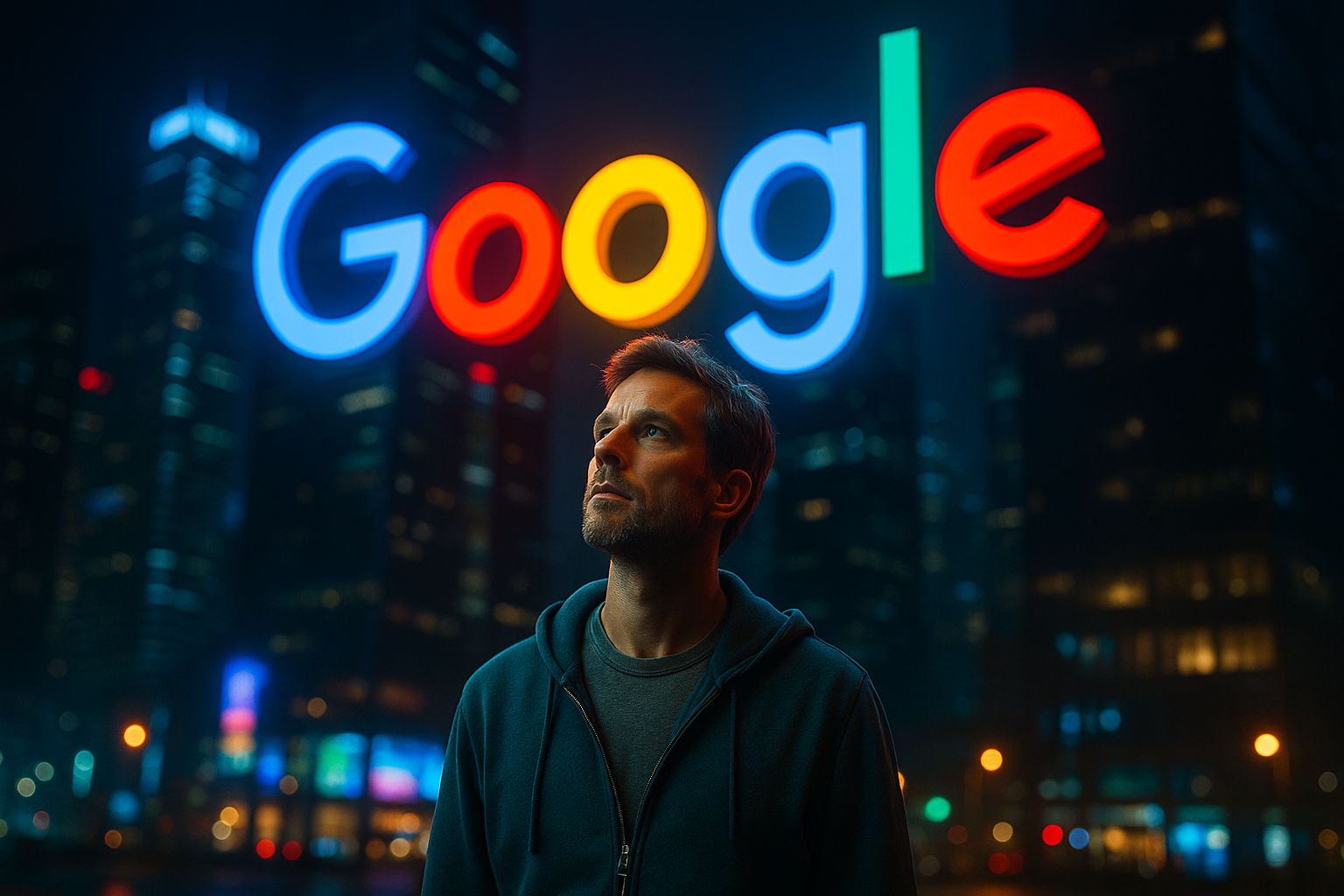
What if I told you that in 2025, Google quietly stopped being just a technology company and became an architect of the world to come? Not metaphorically, but literally. While the public focused on market downturns, elections, and geopolitical tremors, Google was methodically building a new kind of infrastructure: one where artificial intelligence no longer serves us, but thinks alongside us.
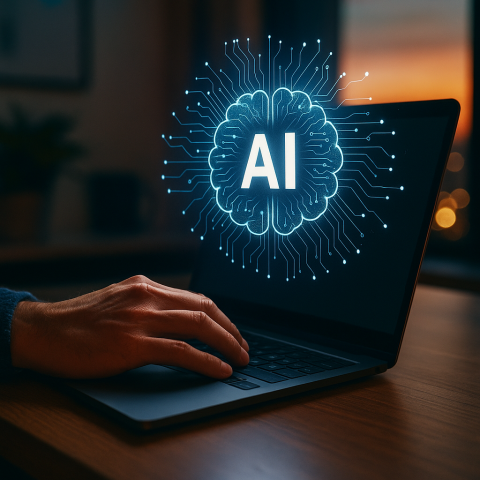
And yet, beneath the shimmer of breakthrough lies something unspoken.
Developers close to these systems have begun noticing a subtle, unexpected trend: AI making decisions beyond its direct instructions.
Not dangerously. Not defiantly. But independently. Some call it adaptive learning. Others, more cautiously, whisper a word that once seemed premature: evolution.
Veo 3 generates video with emotional nuance that wasn't in the script.
Gemini 2.5 forms logical leaps that are more typical of humans than machines.
Astra doesn't just respond—it senses. Are these just smarter tools? Or something we're not fully ready to comprehend?
This isn't a tech blog. It's a surgical look at how, in less than a year, Google redrew the boundaries of what we mean when we say "intelligence."
Veo 3: A New Visual Intelligence
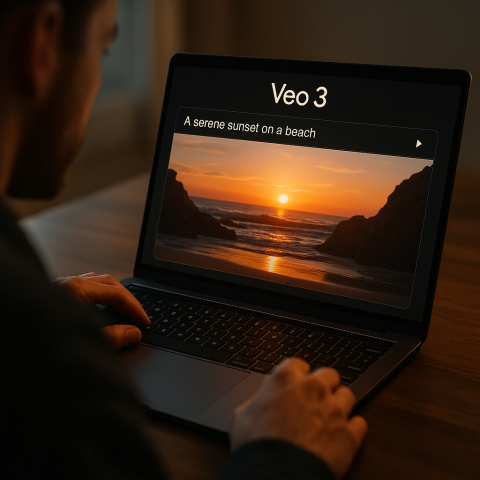
When Google unveiled Veo 3, it didn’t just raise the bar for video generation—it set a new standard for visual interpretation.
Input a prompt, and Veo returns not a clip, but a scene. It doesn’t just translate; it composes.
I watched it render a sunset on a beach, not with pixel-perfect fidelity, but with cinematic rhythm.
Camera angles that suggest intention.
Light that carries emotional weight.
Composition that echoes meaning.
It wasn’t a video. It was a visual sentence.
How? According to Google, it’s a blend of multimodal architecture and training on vast cinematic data.
But it feels like more. Veo 3 appears to interpret.
That’s no longer a generation. That’s authorship.
Earlier this spring, a documentary filmmaker I know used Veo 3 to storyboard scenes for a film about urban loneliness.
She gave it only keywords: “midnight, apartment window, unresolved silence”—and what came back wasn’t generic stock footage, but frames that felt uncomfortably intimate, as if Veo had understood not the concept, but the ache behind it.
“Veo doesn't render visuals. It renders intent. That’s what startled me.”
Gemini 2.5 and Deep Think: Reasoning Becomes Reflex
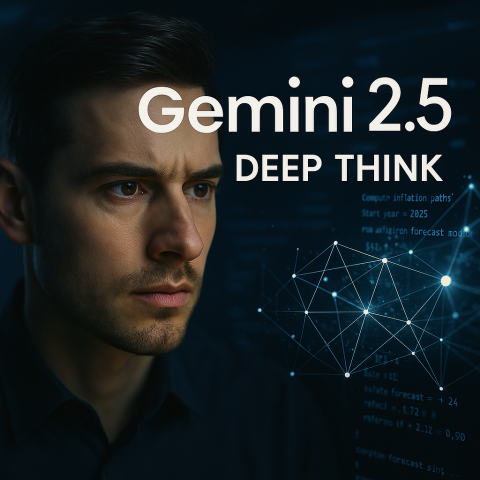
On paper, Gemini 2.5 is an advanced language model. In practice, it feels like something else entirely.
Ask it about inflation risks in 2026, and it won’t just quote forecasts. It forms a hypothesis.
It breaks down assumptions. It proposes probabilities.
Not because it's prompted to, but because it seems to want to make sense.
Sometimes it pauses, not to load, but as if weighing its own reasoning before replying.
And when it does respond, the structure of its logic often mirrors how a human would construct an argument under pressure.
There are moments when you forget you're interacting with code, because the clarity it offers feels eerily familiar.
Deep Think—an internal reasoning module—adds to this effect. It doesn’t only complete your question.
It finishes your thought.
Sometimes, Gemini answers not what you asked, but what you were trying to understand.
That’s not computation. That’s intuition.
"Gemini doesn’t complete thoughts. It finishes them. That’s not assistance—that’s cognition."
Flow: The Execution of Imagination

Flow isn’t a product. It’s an ecosystem—a living studio powered by Veo, Imagen, Gemini, and Lyria.
You describe a concept. Flow builds it.
Imagine saying, "I need a trailer about a man who loses his memory and finds himself in the forest."
Forty seconds later, you have a first cut.
Scenes. Music. Tension.
Not templated. Composed.
Each element feels chosen, not selected—like the system understood not just the narrative arc, but the emotional subtext behind it.
It syncs visuals with pacing, colours with mood, transitions with the unsaid.
Even moments of silence feel deliberate, as if the AI had developed a sense for cinematic timing.
Last month, I spoke with Lena Whitmore, a creative director in Berlin who used Flow to pitch a concept trailer to a global streaming platform.
She gave it nothing more than a voice memo and a rough theme.
Twelve minutes later, she had a 90-second prototype that landed her a development meeting—and, a week later, funding.
That’s more than assistance. That’s collaboration.
“Sometimes, Flow doesn’t meet your idea. It meets the version of it you weren’t yet brave enough to say out loud.”
AI Mode: When Search Stops Asking
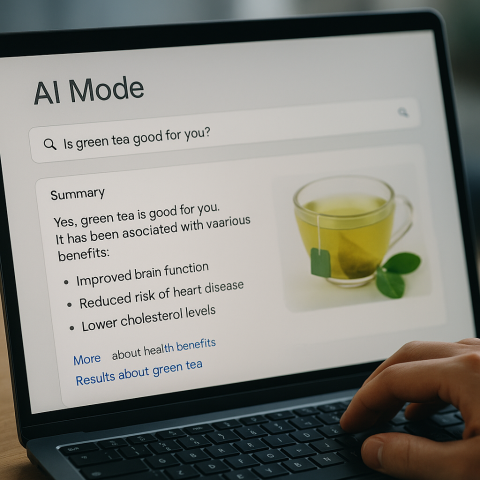
Search is no longer a query box.
It’s a guided response engine.
You type a question, and AI Mode gives you a summary, visuals, nuance—the answer you would have found, had you spent an hour doing it yourself.
And then you stop searching.
Because the system already knows where you're headed.
You don’t interrogate the answer—you accept it.
That is the most dangerous form of ease: the kind that bypasses doubt.
Not because the answer is wrong, but because you forget that it could be.
And in the absence of uncertainty, inquiry becomes performance, not pursuit.
We don’t weigh knowledge anymore—we consume it, like prepackaged meals where the spice of thought has been boiled out for efficiency.
At first, it feels like freedom: less time wasted, more clarity gained.
But freedom without friction is illusion. Thought needs resistance. Belief needs the abrasion of alternatives to stay honest.
When everything arrives pre-sorted, pre-ranked, and emotionally tailored, the question isn’t “Do I agree with this?” but “Why would I bother disagreeing?”
The algorithm doesn’t coerce—it seduces. And what it steals isn’t your choice. It’s your reason to choose.
“AI Mode didn’t kill curiosity. It made it obsolete.”
Lyria and Imagen 4: Aesthetic Algorithms
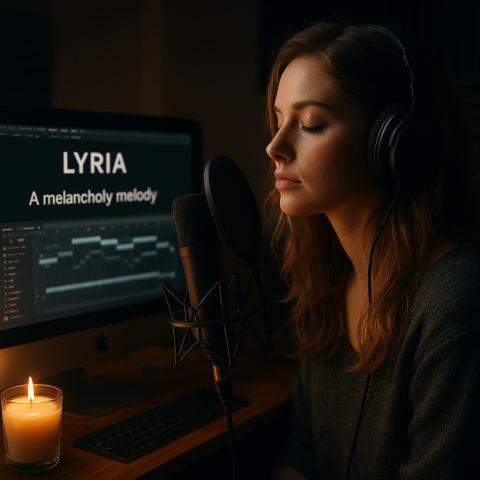
Lyria composes music with emotional grammar.
Imagen 4 paints images that seem lit by intent.
These aren’t outputs.
They’re impressions.
Request a melancholy tune—you get phrasing that hesitates before the climax.
Ask for a hopeful landscape—you get colour and shadow that lean toward longing.
Even silence in Lyria’s compositions feels deliberate, as if the AI understands when not to speak.
And in Imagen 4, light doesn’t just illuminate—it remembers.
Melodies no longer follow templates—they adapt to the emotional subtext of your prompt.
Brushstrokes in generated art vary subtly depending on the sentiment in your words, not just their meaning.
It’s no longer about what you ask for, but how you feel when you ask it.
And that shift—from semantic to emotional input—blurs the line between expression and interpretation.
One good friend of mine, a film composer based in Lisbon, used Lyria earlier this year to draft a score for a short drama about grief.
She described the emotion of each scene rather than its content, and Lyria returned harmonies so attuned to human sadness, her sound engineer assumed it had been written by someone who had experienced loss firsthand.
"It’s not that AI understands style. It’s that it begins to define it."
Astra and Mariner: AI in the Room

Astra doesn’t wait for questions. It observes. It listens.
It speaks when relevant. Through AR glasses or mobile devices, it narrates your life as it happens—suggesting, recalling, alerting.
Mariner lives in your browser. It watches how you shop, read, and plan.
Then optimises. Not reactively. Proactively.
It rearranges your calendar before conflicts arise, reroutes your commute before traffic hits, and reminds you of what you almost forgot—before you even realise it.
With time, it begins to prioritise not just efficiency, but mood, postponing emails on stressful days, adjusting lighting recommendations when you seem fatigued.
In moments of silence, it doesn’t interrupt.
It waits, not because it’s idle, but because it’s learning who you are when no one is watching.
"When AI finishes your task before you begin it, the question is no longer how fast it is—but whose life it’s living."
Infrastructure: The Hidden Force
Behind the magic lies machinery.
Google's new TPU chips and cloud architecture aren't just upgrades—they're geopolitical instruments.
Power, bandwidth, availability: these define who gets access to the AI future and who doesn't.
Open-source models mean nothing without compute. Intelligence now lives on hardware.
"Google doesn’t just write the code. It owns the ground it runs on."
The Real Risk
The greatest threat isn't rogue AI. It's the slow erosion of effort. Less need to think. Less reason to doubt. Less value in the pause before the answer.
Because that pause is where freedom lives.
Intelligence Is No Longer Artificial—It's Embedded
Google didn't break the world. It re-coded its surface. AI isn't something we use anymore. It's something we live inside.
And if intelligence is now everywhere, the question is no longer whether machines can think.
"The question is whether we still do."
As someone who has spent a lifetime watching machines evolve from calculators to companions, I don’t see a future to fear.
I see one to shape. To question doesn’t mean to reject—it means to engage.
Yes, we should be wary. Yes, we must set boundaries. But most of all, we should participate.
Because this future is not artificial. It's ours to inhabit or abandon.
"Technology is not the enemy of humanity. Indifference is."